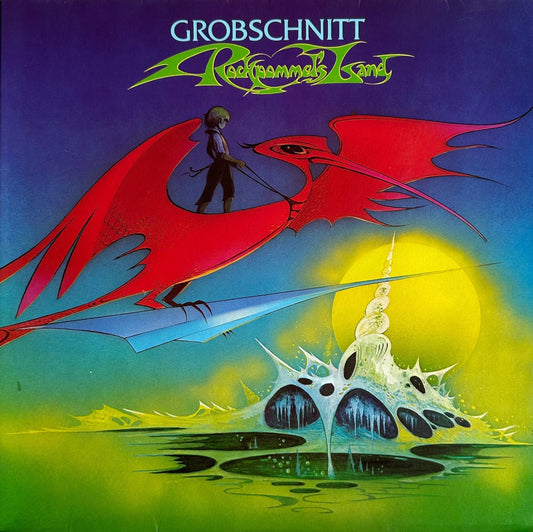When Gene Simmons of the band KISS said that “Rock is dead” in 2014, it sent shock waves throughout the industry. He later clarified his comments by saying that new bands “haven’t taken the time to create glamour, excitement and epic stuff” and that they lacked the ability to develop a real legacy. Recently, he added to these thoughts by commenting on how the current music business model is really stacked against the artist.
The team at Deko Entertainment would probably agree with most of what Simmons has said. That in part is why they founded their label. Deko was launched with the intent of providing a home to legacy rock artists who were continuing to make great music but couldn’t capture the attention of any major label. These are artists that they felt continue to have a vision and a story to tell.
Partners Bruce Pucciarello, Grammy award-winning engineer Alan Douches, and musician Charlie Calv have focused on traditional artist development and a more evolved approach to marketing and promotion, helping Deko quickly grow into an enterprise that very well might be the model for music moving forward. Their business has quickly grown from a handful of vinyl projects to full-on representation of existing and emerging acts, with a variety of offerings. Their roster includes bands and artists like Ten Years After, Cold Weather Company, Albert Bouchard and Joe Bouchard (formerly of Blue Õyster Cult), legendary drummer Carmine Appice and now Tiffany among others.

New platforms are about to be launched which promise to take things to another level. In the process, Deko Entertainment might not only change the label business, but it just might transform radio, streaming and every other outlet designed to help you discover great music.
We caught up with the team and talked about the label’s origins and where they see things going forward. The energy they bring to the conversation was simply infectious.
Ray Chelstowski: How did Deko get its start?
Alan Douches: Deko really started about 25 years ago. I was working with artists who I felt were making really great records, but couldn’t get a record deal. Through my connections, mostly through working with a lot of indie labels, I managed to convince Big Daddy Records to distribute us. Unfortunately we didn’t have the personnel or the capital at the time to really take advantage. As we tried to reboot this four years ago, it was more because “physical” (sales of physical media) had dropped off. Everyone had access to digital distribution. For perspective, 60,000 songs a day are uploaded to Spotify. That’s a wonderful world, except it’s too “noisy” and there’s no way for an artist to get [the] branding [they need].
That’s when we realized that there was a need for physical [media]. So Charlie and I got together and approached ADA [Alternative Distribution Alliance} for distribution. We weren’t going to just pick up an artist’s back catalog, press it and hope for the best. This is about teamwork, and the artists have to be able to give us some shows [and] have to be able to tour at least regionally, and we kinda kicked it off from there.

With the addition of Bruce [Pucciarello] we are looking at a bigger picture. [We’re] not just looking at established artists that need a home, but also new artists who want to identify with their brand. It’s not about just throwing it up on Spotify and getting a bunch of likes.
RC: Indie labels like Wicked Records seem to be focused on a specific kind of sound. Deko seems more open to variety. How do you determine who belongs on the label?
Bruce Pucciarello: Deko is an entertainment community, and our commitment is to be open-minded and supportive of all music and art. The “institutional” approach is fine for some, but we aren’t looking to corner a market or focus our artists to leverage a specific fan base. Maybe it sounds antithetical to the typical business model, but we are just building a positive artistic community, and in our community, we love all different kinds of music. We want to [put] our artists [in a place] to create, and then it is our job to get [them] out to the public in a fair and equitable way and make enough money to invest in their next project. We meet with our artists constantly and we are available to all of our artists whenever they need us. We are not a record company. We are a partner for our musicians.

RC: Does being a musician give you a better perspective on how things should operate?
Charlie Calv: It does because I’m very empathetic to the artists, I understand how they feel. I know that there are a lot of labels out there who will put out your product. But once it’s out it’s hard to get return phone calls or get people to return your emails. We on the other hand are really passionate about what we do and if we are going to take someone on we’re gonna work it and make sure that the artists are happy.
RC: Deko has really assembled some great bundle packages by artist. How do you determine what goes in to each offering?
CC: It kind of depends on the artist. You need to find new ways to monetize product. You’re only going to sell so many CDs; you’re only going to sell so many pieces of vinyl. [But] what else can’t fans get access to? Especially due to COVID. You’re not going to shows. You can’t pick up a poster or a T-shirt. Why not make [all] that available and bundle items together? You make it cost-affordable and you try to tailor it to the artist. The success we had with the Bouchard brothers (of Blue Õyster Cult) was obviously [offering a package with] the cowbell. That was a no-brainer. It’s really coming up with creative things that the artist and the fans will both like.
 Albert Bouchard's Re Imaginos bundle with signed poster, CD and cowbell.
Albert Bouchard's Re Imaginos bundle with signed poster, CD and cowbell.
RC: Have you found that there is a sweet spot for pricing a bundle?
CC: We try to keep everything under $100. Then there’s shipping costs as well, which can become expensive. We are doing the 25th anniversary [edition] of the Guitar Zeus [album] with Carmine Appice. That’s going to be a heavy-ticket item. It will be four LPs, three CDs, a booklet, and a piece of jewelry that has Carmine’s logo on it. And the quality of this stuff is really good. That’s part of the beauty of having one of the partners in the company, Alan, being an award-winning mastering engineer. When we go in and remaster this stuff it sounds pretty awesome.
RC: Can classic rock radio become part of your future?
AD: I think that radio is going to need a really big reboot. They’ve been in need of that for a while because they just [haven’t] reinvented themselves. I think that we have to get back to the personalities. That’s what we [originally] fell in love with – which DJ brought us what music. My first label manager was initially a manager of a record store and as a freelance producer/engineer I would go to him and ask, “hey Mike, what’s gonna be hot?” He had that magic touch of being able to pick what was going to click. I didn’t read the “Heatseekers” [chart] in Billboard. Mike was in the store talking to kids and the record companies, and he knew what had a chance of making it. Maybe the next cool step for Deko is to have that person. I have someone in mind.
RC: With so much music being consumed through new channels, how are you looking at technology as a tool to drive the business forward?
BP: The best businesses come up with smaller pieces of effective technology to accentuate their specific business model. That leads to a flexibility they have that the larger companies can’t duplicate. I don’t think anyone else is doing that as much as we are.
AD: We just got our first beta version back of an ITV app that we are going to be porting over to Samsung and others. There are certain channels that will be designed for specific genres. But there will also just be storytelling, where you will see Tiffany followed by Cold Weather Company followed by Angel. And maybe it’s all because they have a really great story.

CC: With our [upcoming] Apple TV app/channel, we’re also going also be able to offer surround sound along with HD quality. The real audiophiles are going to love this stuff. If you’re an Albert Bouchard fan and you like the Re Imaginos record [a remake of the 1988 Blue Õyster Cult Imaginos album, which was originally supposed to be an Albert Bouchard solo album – Ed.], imagine having a couple of those tracks in surround sound!
RC: Which artists in your portfolio are you most excited about?
AD: I’m excited about all of our new artists and I think that Deko is really just getting started on this vision of an artist-centric place where you can create art again. I know that a lot of people are striving for that but I think we’ve got a good shot at it. We’ve got a good team and I’m looking forward to how we can present this to new artists.
RC: Record stores seem to be reimagining their spaces. How can a label help music get back to a place where the connection to the fan is more intimate?
AD: I have no problem with a record store selling socks or bandanas or coffee if we are promoting the art. Many record stores are putting in small stages and letting the in-store experience be part of the [overall musical] experience for their fans. We at Deko want to approach those mom and pops and help them get artists who will be entertaining, [and where] we aren’t just trying to push the hit single, but instead the [artist’s] whole story.
BP: “Farm-to-table” aptly describes a future vision and repurposing for the “record store.” I think labels need to take ownership and build community for each of their artists locally, with the record stores and the local independent [musical] instrument and [music] lesson centers. There is a natural synergy here that is often underutilized.

RC: When live music opens back up would you consider assembling a label tour?
CC: I’ve always been a fan of labels that do their own little mini-festivals and we actually had some conversations with some booking agents overseas before COVID broke out. From a human perspective, you create bonds for life at these festivals. We just started doing some live streams. Albert’s done Re Imaginos in its entirety and we’ll be streaming that. We have some other [things] planned [once] things open up because these guys wanna play!
RC: In addition to the new technology and broadening the artist roster, what’s next?
BP: We plan to onboard advanced technology from another industry, in order to streamline our merchandise sales and delivery systems. We are currently cultivating domestic and international partnerships that will benefit all of our artists and expand the Deko Entertainment portfolio.
CC: With some of the newer releases, we aren’t releasing the single and the album right away. We are going to release them as a mini-series or an EP where you’ll get three songs. Then we’ll release another EP. In the end, the culmination will be the double-LP or whatever it turns out to be.
We are just starting to cross-pollinate some of the acts so that younger artists have the opportunity to work and be mentored by some of these legacy acts that have seen it all; from songwriting to life on the road.
AD: When I was a kid growing up in the ’70s you sat there in that rocking chair with the vinyl gatefold open and headphones on and you took in every word and every note and you watched the [whole] picture unfold. You fell in love with it. I think we have a challenge in terms of how that [happens] now. We’re not ignoring technology. But it’s got to get more endearing [and] back to that love of the art. Even if it’s a small niche, if we can conquer it I’ll be happy.
Header image of Ten Years After courtesy of Rob Blackham.



